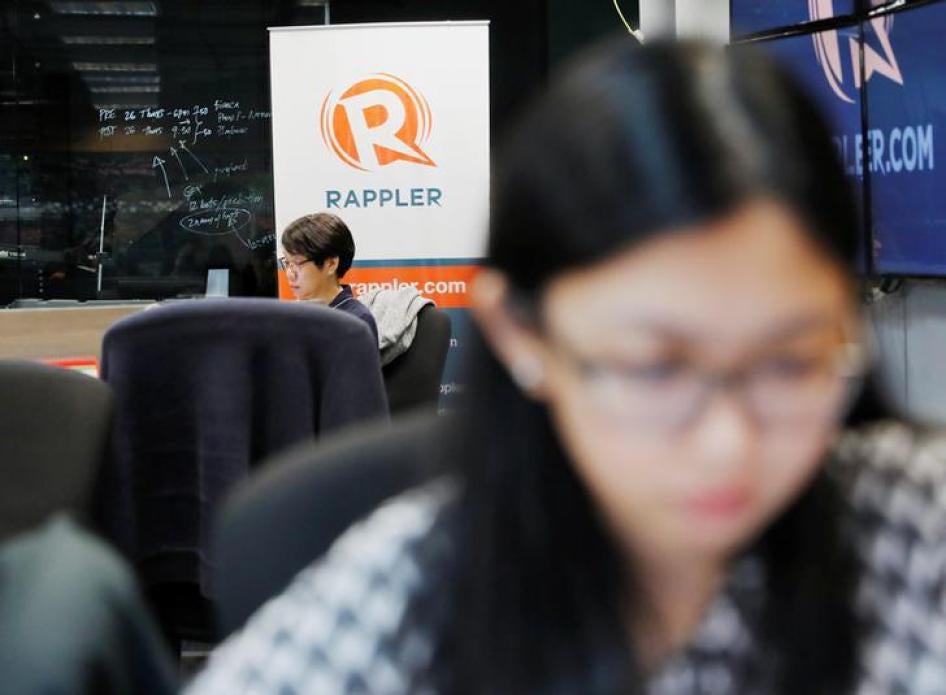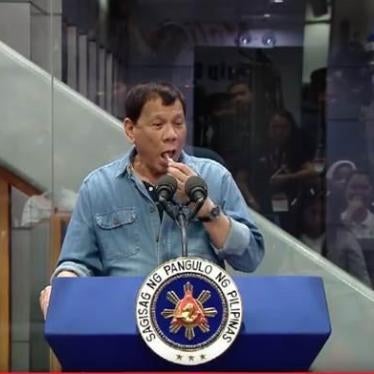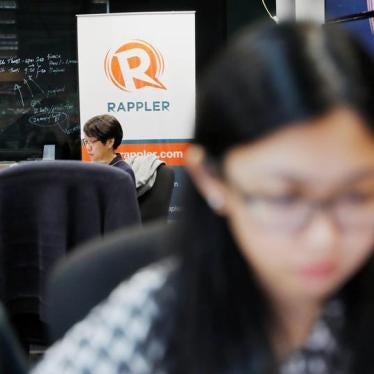Philippine President Rodrigo Duterte’s administration renewed its assault on the media by banning a reporter and the executive editor from the news site Rappler from entering the executive office at Malacañang Palace. The ban followed a Senate hearing on a controversial frigate deal, during which a top Duterte aide accused Rappler and the Philippine Daily Inquirer of publishing “fake news,” which both news outlets denied.
The administration gave no clear reasons for banning the reporter, Pia Ranada, from media briefings. The presidential spokesman, Harry Roque, said Ranada could still enter Malacanang, while a senior Malacañang official, Jhopee Avancena, said she could not. Rappler reported that Avancena sent Ranada a text message saying that Duterte himself had ordered her kept out.
Ranada has been covering the presidential beat as a member of the Malacañang Press Corps. She has become known not just for putting tough questions to the president during press briefings, but also for being the target of presidential ire. Ranada and Rappler’s CEO and executive editor, Maria Ressa, have been vilified by Duterte supporters on social media as part of a seemingly organized campaign against critical journalists.
Previously, the Philippine Securities and Exchange Commission (SEC) ordered the revocation of Rappler’s license to operate. The SEC alleged that, as Rappler had received investment funds from the international investor Omidyar Network, that it also gave the investors control over the media company, in violation of the Constitution. Rappler denied the allegation, calling it part of the government’s campaign to silence it, and is appealing the SEC ruling.
Ranada is believed to be the first reporter denied access to Malacañang Palace since the dictatorship of President Ferdinand Marcos, who severely curtailed media freedom. It could portend a broader assault on journalists and news organizations, whose critical watchdog role has magnified the government’s poor human rights record, from extrajudicial killings of thousands of alleged drug dealers and users to conflict-related abuses in the south. Filipinos this week celebrate the 32nd anniversary of the 1986 People Power uprising that led to the ouster of Marcos, inspiring the world. They should also take this opportunity to show their support for a free press.










